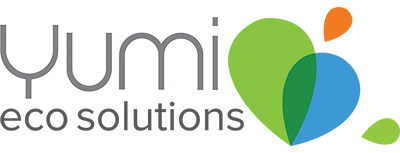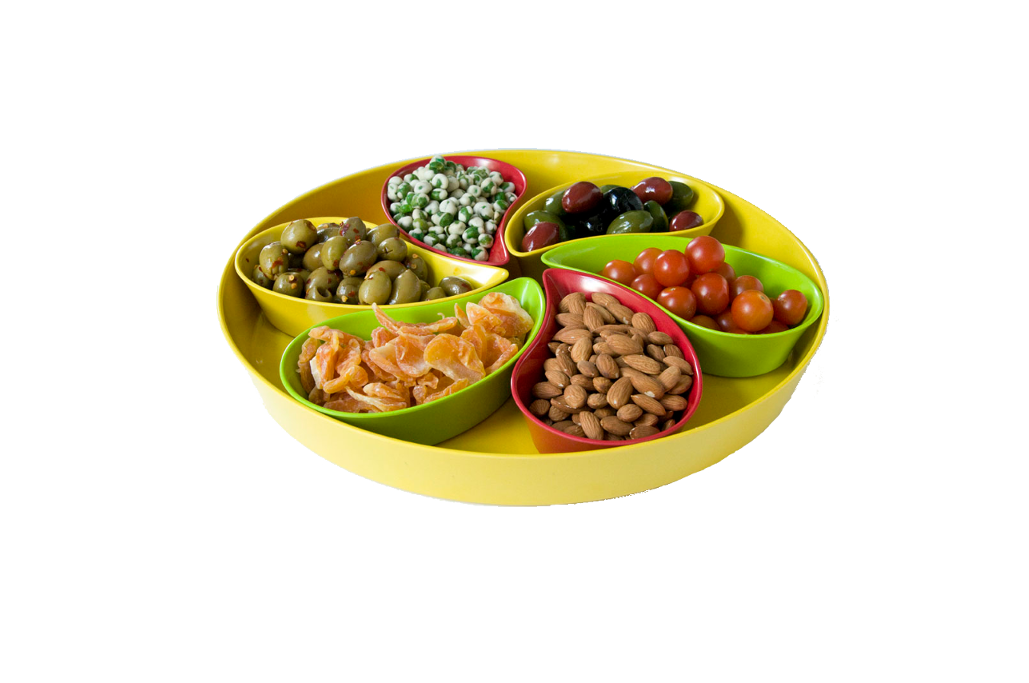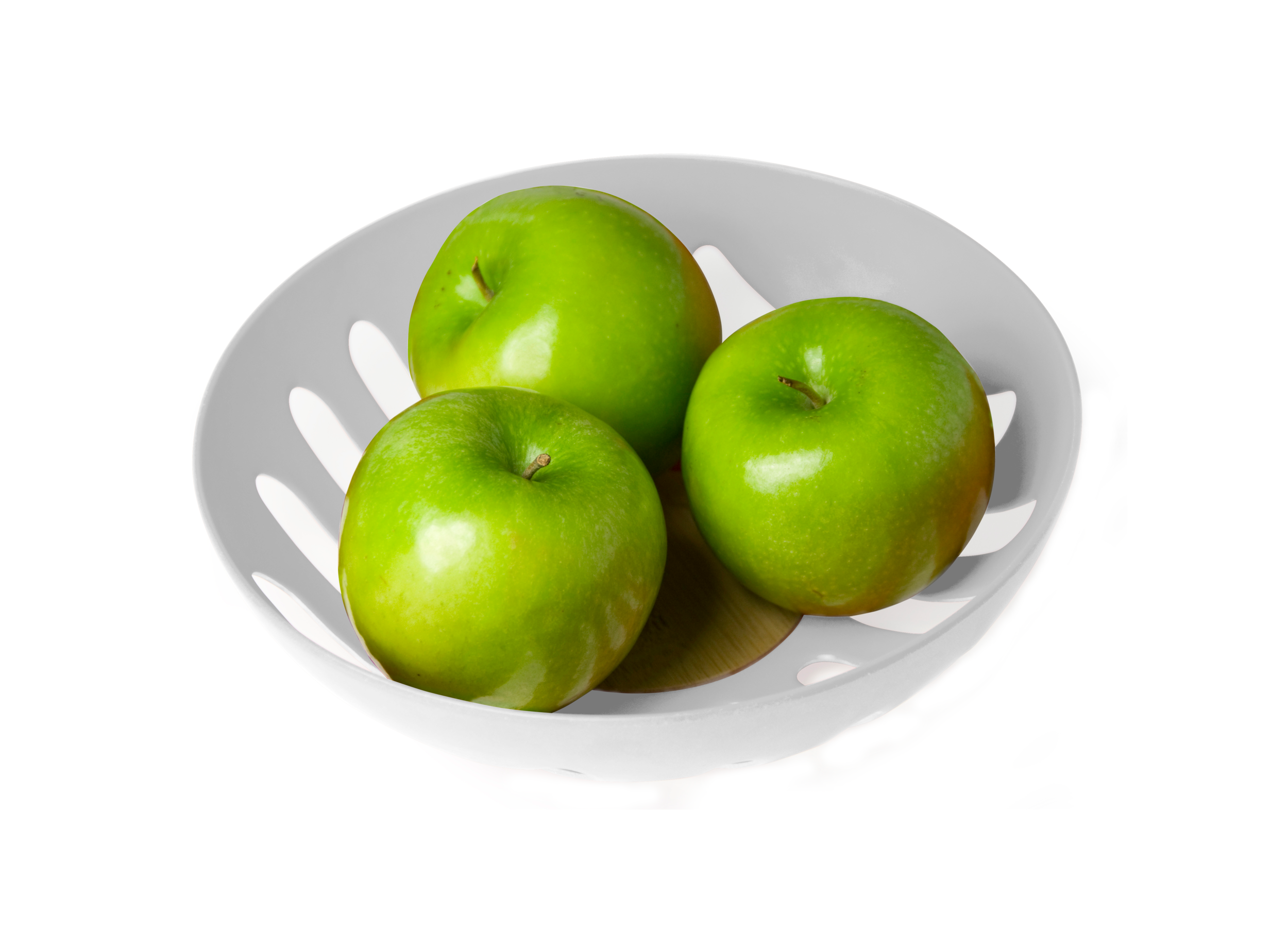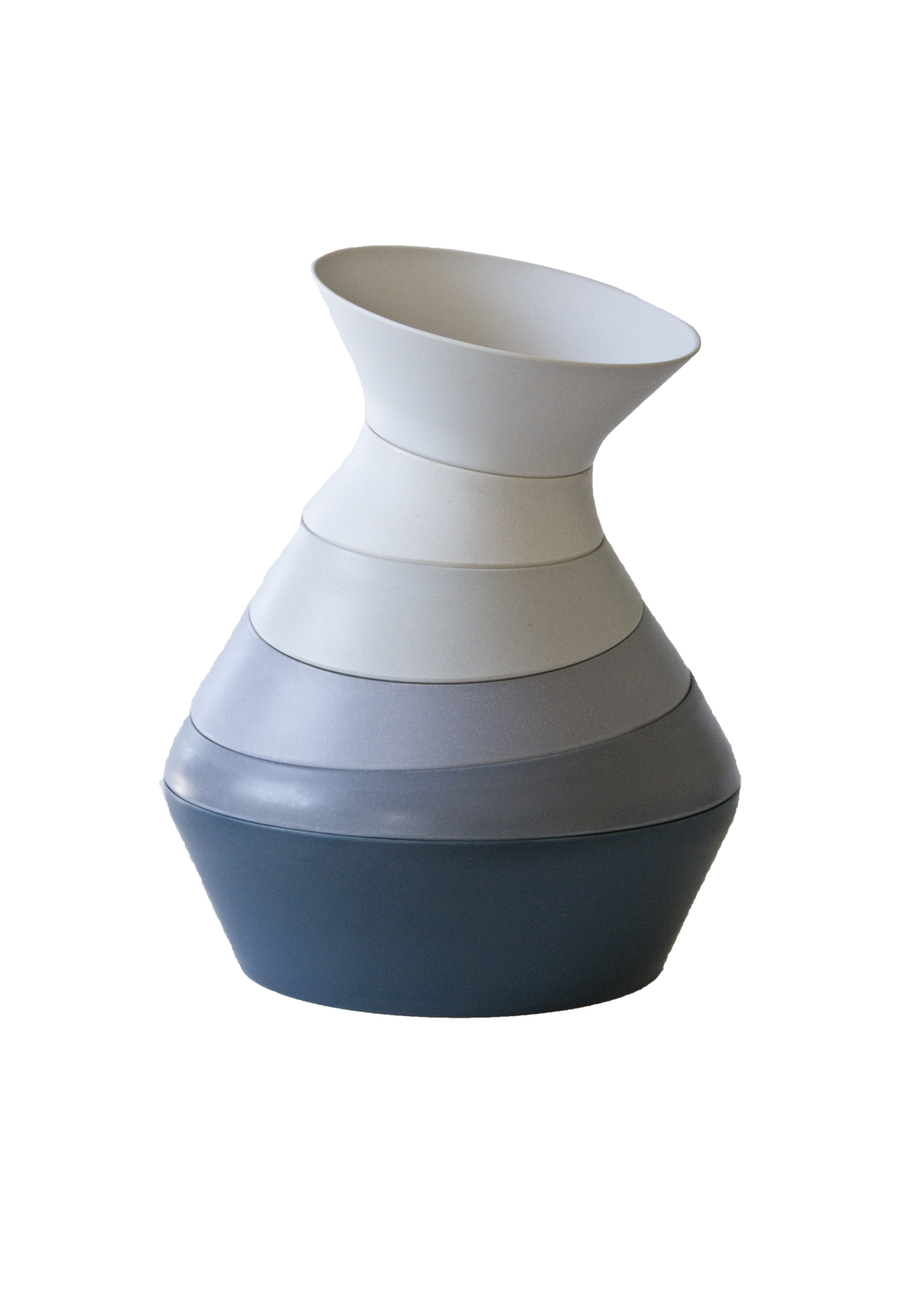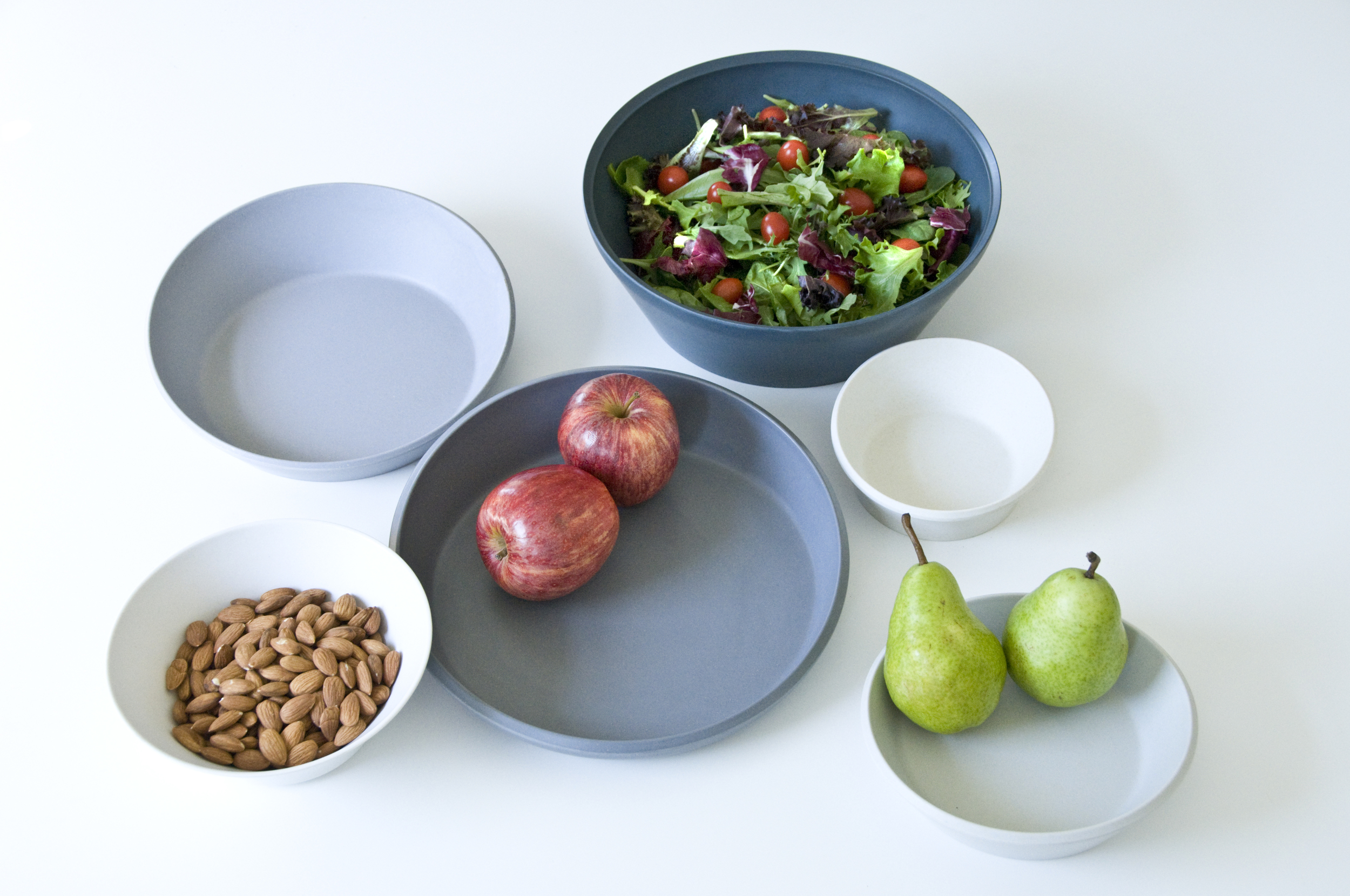The following article is reprinted from Innovation Destination Hartford.
Innovation Destination Hartford Website Curator Nan Price recently spoke with Virginia P’an, Chief Executive Officer of Yumi EcoSolutions, Inc. The social business venture startup manufactures innovative, premium-quality products made from sustainable and renewable biomaterials and is committed to creating a more sustainable planet.
PRICE: Tell me about the name “Yumi.” I read somewhere that it means “corn” in Chinese and “beautiful” in Japanese?
P’AN: Yes. And “Yumi” actually stands for “you and me.” Together, we are creating a healthier planet.
PRICE: That’s clever. Did you always know you’re going to be an entrepreneur?
P’AN: Not really. I’ve had about six or seven different careers now. I’m a serial entrepreneur; this is my third company. At this point in my life I wanted to give back to the community and our world at large. I want to create a healthier, better, more sustainable world for the future generation. That’s why I’m in this business.
PRICE: What do you think are the most critical skills you need as an entrepreneur?
P’AN: Well, you have to be a pretty driven person to be an entrepreneur because you’re working 24/7. And you have to stay focused. You can’t get distracted, otherwise won’t be able to accomplish anything.
PRICE: You touched on how you developed the business concept for Yumi EcoSolutions. Can you give us more background about the company?
P’AN: We are a sustainable biomaterials technology company. Biomaterials today is where plastics was in the 1960s. And now, of course, plastics is ubiquitous. It’s a $500 billion industry. And it’s destroying our planet.
To demonstrate that these biomaterials are viable, Yumi EcoSolutions got into the consumer products business with our Return® disposable natural starch products and also with our Yumi Nature+™ products, which are reusable. We’re replacing plastics, which are petroleum-based, and proving that these biomaterials are viable and can make beautiful products.
PRICE: And even though you can recycle plastics, they are not compostable, like your products.
P’AN: There’s a big difference between recycling and composting. Our products are compostable, which means they become peat moss or dirt, which becomes part of the Earth.
Recycling has become very big, but there is a misnomer in the market. Recycling is a step in the right direction, but certainly not the ultimate solution because with recycling, what are you recycling? You’re recycling plastic. You’re putting it through a tremendous amount of toxic chemicals to be able to reconstitute a new product. When you use recycled products what do you have at the end of the product? You still have plastic. Right?
PRICE: Right.
P’AN: So the recycling industry has done a very good job of not telling consumers that because people don’t think through the whole lifecycle.
PRICE: That’s true. As a consumer you think: I’m putting this plastic in the recycling bin and I’m doing good for the Earth.
P’AN: You are doing better than not recycling. It’s a step in the right direction, but certainly not the ultimate solution.
PRICE: So that was sort of the genesis of starting this specific company—to make an environmental impact?
P’AN: Absolutely. Aside from being a profit-oriented company, we’re really a social venture. Our real objective is to create a healthier and more sustainable planet for future generations, as those are the people who will be impacted—your kids and your grandkids. And look what we’re doing right now.
Yumi Nature+
PRICE: Yumi EcoSolutions was launched in 2010. How did you fund the company when you were first starting out?
P’AN: Let me give you a little history. We started out working with multi-billion dollar consumer product companies. We came down from the Board of Directors to middle-management, so we were talking about replacing yogurt cups, frozen dinner trays, all those types of things. The big companies, when you get into middle-management, were afraid to make a new decision. So we got tested to death. They never could make a deal to say they were going to use our products. That’s when we got funding from the state of Connecticut through the Department of Economic and Community Development (DECD) Small Business Express Program (EXP). We used the funding to develop the two Yumi eco-friendly product lines.
Besides the state, most of the money for the investment of the company came from my own personal resources. It still is.
PRICE: That seems to be the way it is with a lot of startups and entrepreneurs.
P’AN: Absolutely.
PRICE: It sounds like funding was definitely one of your startup challenges.
P’AN: Funding is always a challenge for a new business. And it happens while you’re developing and keeping getting your product into the market. That’s pretty standard.
There are a lot of challenges to launching a startup. One is funding. Another is finding the right distribution channels to get your products to the market and finding the right people—that’s all based on relationships. You’ve got to find the right people. There are a lot of talkers.
PRICE: You’ve definitely been successful finding the right people. Your products are in 1,000 retail stores across the country. How have you built such a successful customer base?
P’AN: Hard work. First you have to develop the products. You have to define them, you have to have them made, and you have to design packaging. Everything we do is premium. Our products are beautiful. They’re very suitable for the 21st-century lifestyle.
You’ve got to start with a good product otherwise you can’t sell anything. You’ve got to have a good product that’s well packaged. You’ve got to have the right photography before you can even go out to the market.
And then you have to carry inventory and—at the same time—you have to build up a sales staff and you have to train them about your products. And, since ours was a revolutionary new product, it’s not like selling Coke or Pepsi. You don’t just show up and ask: How many cases do you want? You have to teach the companies that are buying your products about your products. So it takes extra work. It’s not the typical sales pitch.
Yumi Return "The throw away that goes away"
PRICE: You mentioned that you are a serial entrepreneur. Were the other companies you founded products-based as well?
P’AN: No, they were all consulting type of work.
PRICE: So this is totally new ground for you.
P’AN: Yes.
PRICE: How has that been for you, learning a completely different business structure?
P’AN: It’s great. I’m learning something new every day. It’s wonderful to learn. I love learning. We have to learn every day, otherwise we become dinosaurs. We don’t have a choice—everything is moving so fast.
As an example, I recently learned about responsive websites. We just launched a beautiful new website www.yumieco.com.
PRICE: Do you have many competitors?
P’AN: We don’t have any really major competitors. We’re still pretty first-to-market. But we need to get as much distribution as possible quickly to dominate the market.
PRICE: Along those lines, how do you envision the company’s future growth?
P’AN: I envision us to be the 21st century’s first billion-dollar eco-products company—which does not exist today. That is our goal. It’s quite conceivable since we’re looking at a $100 billion platform.
It’s like when the Chobani yogurt company started. They were nobody. They brought a brand-new product to the market and they’re over $1 billion now. So it’s quite probable and we will be doing it.
PRICE: Why are you located in Connecticut?
P’AN: I’ve lived here for many years. We love Connecticut. It’s a beautiful state. It’s a wonderful place to live with a great lifestyle.
In the early part of my career, I worked for American Express Bank and also the Federal Reserve Bank New York. I commuted to New York from the Greenwich area for many years, so I’m delighted to be domiciled in Connecticut with my office 15 minutes from my house.
PRICE: Speaking of your earlier career, you are definitely a very influential and innovative person. And, as an entrepreneur and global leader you have experienced many firsts:
- First woman vice president at American Express Bank
- First female advisor to the Hong Kong Stock Exchange and the Taiwan banking industry
- First woman worldwide to manage investment portfolios of $7 billion dollars
- First female Chinese-American professional on Wall Street
You’ve also been the recipient of several prestigious awards including the 2003 Leading Woman Entrepreneur of the World Award, the 2006 Business Innovation Award, and the 2008 International Woman of Influence Award.
P’AN: And on June 16 I received the 2016 Outstanding 50 Asian Americans in Business Award at Cipriani Wall Street New York. This prestigious award recognizes the best of Asian American entrepreneurs, professionals, and corporate executives who are making positive contributions to our society and economy.
PRICE: Congratulations. You’re really making a huge difference, which is fantastic.
P’AN: The main thing is to sell my products so we can create a better world. That’s the whole reason. I could do without the publicity, but I have to be out there to make our mission known. I’m the spokesperson for the company and the products.
PRICE: Are you comfortable being in the limelight or is it a role you’ve had to step into?
P’AN: I’ve been doing this for many years. It comes with the territory.
PRICE: Can you characterize your life as an entrepreneur in one word?
P’AN: Exciting.
To learn more about Yumi EcoSolutions and their commitment to saving the world for you, me, and future generations, visit www.yumieco.com.
